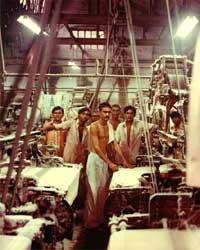Recycling is not always beneficial
Greenpeace has denounced this to the problem of India. It is known that the largest recycling companies in the world are in India, but that it is close to 11 September and now it has spread that the waste sent to this country generates serious health problems for waste pickers.
India accepts the rubbish of developed countries in order to market this material once recycled. The rules of developed countries are much stricter environmentally than those of India. In addition, employee salaries are very low and the market needs economic products. Therefore, it is no wonder that India has become a landfill of developed countries.

Among this pile of garbage collected by India are the remains of the Twin Towers. Although they were initially said to have no toxicity, in the future some organizations warned that it was a very dangerous material. In fact, asbestos, PCBs (polychlorinated biphenyls), mercury, lead, and other hazardous components of computers and electronics are next to steel.
All these materials endanger the health of workers, as no steps are taken to protect workers. But the risk is not just from the material they recycle, sometimes the recycling methods themselves are also harmful to health.
On the other hand, environmental managers consider that what these industries do is not recycle, but reuse materials to produce lower quality products. In this way, the benefits are greater. According to them, to overcome this problem it is necessary to show industries that environmental care is also beneficial for economies. Industries should take into account when developing their products the ease and safety of their subsequent recycling. Therefore, the use of cleaner materials in production processes is recommended.
In addition to the employees of recycling companies, those who collect material for these companies also suffer serious health problems. In fact, there are thousands and thousands of poor people who daily collect material for recycling companies among street trash. The people who work in this workshop are called cabadiwallahs, and they are men or women, children or adults, who spend all day from garbage separating and collecting rags, plastic bags, glass and iron for later sale to recycling companies. It is clear that, in addition to being foolish, they are at risk for many diseases.
Buletina
Bidali zure helbide elektronikoa eta jaso asteroko buletina zure sarrera-ontzian











